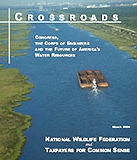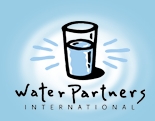| |
| |
|
|
Water in American Culture
(under
construction)
|
|
| |
 |
 |
This is the
online version of NRDC's March 1999 petition to the FDA and
attached report
on the results of our four-year study of the bottled water industry,
including its bacterial and chemical contamination problems.
The petition and report find major gaps in bottled water regulation
and conclude that bottled water is not necessarily safer than
tap water. The online version contains all of the report's text,
tables and figures; it does not include the accompanying Technical
Report or additional attachments to the petition. |
"Water,
Water, Everywhere – Bottled Water Market in the US."
Industry Overview, Statistical Data Included. American Demographics,
Oct 1, 2001 |
Chris Baskind. "5
Reasons Not to Drink Bottled Water." Health + Spirit
(Tuesday, 19 June 2007) |
Anne Christiansen Bullers. "Bottled
Water: Better Than the Tap?" U.S. Food and Drug
Administration FDA Consumer magazine (July-August 2002). |
Janet Majeski Jemmott. "Bottled
Water Vs. Tap Water: Chemicals, contaminants, pollution,
price: new reasons to rethink what you drink and beware of bottled
water." |
Drinking
Water Information: Bottled Water or Tap Water? (from Environment,
Health and Safety Online) |
|
|
| |
 |
|
| |
| |
|
 |
Special
issue of Our Planet, UNEP’s
magazine for environmentally sustainable development.
Each issue of Our
Planet concentrates on one specific theme, tying
into international conferences (the 10th anniversary
of the Basel Convention), meetings (the Commission on
Sustainable Development), events (World Environment
Day), or dealing with issues of our time (Water
or Climate Change). – Our Planet contains articles
by leaders of United Nations organizations, national
governments, non-governmental organizations, experts,
business leaders and opinion formers. Our Planet reports
on international developments and action. It reviews
current thinking, suggests solutions, and debates the
key issues of environmentally sustainable development.
|
|
| |
|
 |
The
National Wildlife Federation's report called Crossroads:
Congress, The Corps of Engineers and the Future of America's
Water Resources (Adobe PDF document, 3 Mb) outlines some of
the most damaging projects and provides recommendations for
greening the Corps. |
| |
|


|
American
Rivers – American Rivers is the only national organization
standing up for healthy rivers so our communities can thrive.
Through national advocacy, innovative solutions and our growing
network of strategic partners, we protect and promote our rivers
as valuable assets that are vital to our health, safety and
quality of life. Founded in 1973,
American Rivers has more than 65,000 members and supporters
nationwide, with offices in Washington, DC and the Mid-Atlantic,
Northeast, Midwest, Southeast, California and Northwest regions. |
| |
Quotations
on Water |
| |
|
| |
The
Mississippi River |
|
|
| |
The
Driest Season: America's Drought |
|
| |
The Driest Season: America's
Drought (Interactive Map) |
|
| |
|
|
| |
 |
Founded in 1881, the American
Water Works Association (AWWA) is the world’s oldest
and largest nonprofit scientific and educational society dedicated
to the improvement of water quality and supply. AWWA’s
more than 57,000 members represent the full spectrum of the
drinking water community: treatment plant operators and managers,
scientists, environmentalists, manufacturers, academicians,
regulators, and others who hold genuine interest in water supply
and public health. Membership includes more than 4,700 utilities
that supply water to roughly 180 million people in North America. |
 |
How
Americans use their water supply |
 |
Smart
Strategies & New Tech for Turning the Tap on Water Waste |
 |
WaterSense,
a partnership program sponsored by the U.S. Environmental Protection
Agency, seeks to help families and businesses realize that they
can reduce water use by 20 to 30 percent by doing just a few
simple things, such as upgrading to higher quality, more efficient
products. |
 |
What
is your water footprint? |
 |
WaterPartners
International is a U.S.-based nonprofit organization committed
exclusively to providing safe drinking water and sanitation
to people in developing countries |
|
|
| |
|
|
| |
|
|
| |
|
|
| |
|
|
| |
|
|
| |
|
|
| |
|
|
|
|